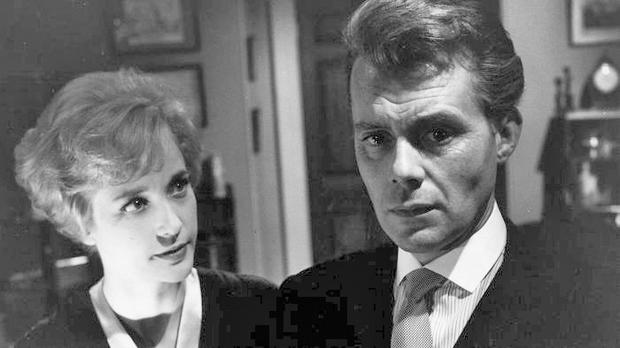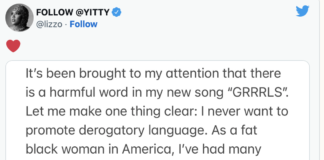These days, societal mores change faster than a flowing river, but until quite recently, sexual morality was rigid and fixed. Sixty years ago, a film was released that perfectly illustrates the point.
Victim was considered so transgressive in its time that it was given an X cert in the UK and banned outright in America. Its makers were openly attacked by the moral majority. Yet it contained no sex scenes; in fact, no sex of any kind, merely implications of active homosexuality — and a plea for tolerance that was anathema to many.
Basil Dearden’s drama appeared in an era when homosexual acts were still punished with jail sentences in the UK and most other places, and censorious moralising forced gay culture underground. As far back as the 1940s, the pioneering sexologist Dr Alfred Kinsey had estimated that at least 10pc of people were gay, yet hypocritical orthodoxies denied the existence of same-sex love and consigned its practitioners to society’s darkest corners.
Though it has not dated well (and more on that in a moment), Victim at least tried to shine a light on the homosexual experience, and hint that gay people deserved as much respect and tolerance as anyone else. Dirk Bogarde, who himself had good reason to take on such a professionally risky project, played Melville Farr, a brilliant London barrister on the verge of being appointed a QC when he becomes embroiled in a blackmail ring.
A man called Jack Barrett approaches Farr to ask for help: he and the lawyer had a romantic friendship, and a compromising photo of them has emerged. Barrett has stolen money from his employers to pay off the blackmailers, and now wants Farr to help him flee the country. When Farr dithers, Barrett is arrested, and later hangs himself in his police cell. A guilt-stricken Farr decides to take on the blackmailers himself, at whatever cost to his career.
In the film, Farr is married, but has vowed to his wife (Sylvia Syms) to resist his gay impulses: how successfully he has managed this remains a grey area in Victim, which offers fascinating insights into how homosexuality was perceived at the time.
But Victim’s views and terminology are hopelessly outdated. Throughout the film, characters refer to gayness as a shameful aberration, a view not shared by Victim’s director, writers or star but an unfiltered reflection of broader societal attitudes. “Nature played me a dirty trick,” says one minor gay character: the era of gay pride was a long way off. Even those relatively well disposed to the victims of the blackmailers’ plot express their support equivocally. “If the law punished every abnormality,” says a well-meaning police detective at one point, “we’d be kept very busy”. In the society Victim describes, the most an actively gay person can hope for is pity and mercy.
And yet Dearden’s film is a landmark in the struggle for gay rights. Though timidly perhaps, it challenged stereotypical perceptions of gayness, and questioned the demonisation of an entire section of society on the basis of their sexual orientation. Some years after the film’s release, Conservative politician Lord Arran, who helped steer a decriminalisation law through the House of Lords, wrote to Bogarde to tell him that Victim had helped shift support for the bill from 48pc to 63pc. The film would eventually end up on the British schools curriculum.
In a sense, Bogarde had the most to lose by making Victim. In 1961, he was probably the biggest movie actor in Britain, star of the long-running Doctor film series, a handsome and debonair matinée heart-throb whose box-office clout was such that the press dubbed him “the idol of the Odeons”. He’d been courted by Hollywood, and had recently starred opposite Ava Gardner for MGM in The Angel Wore Red.
James Mason, Jack Hawkins and Stewart Granger had turned down the Melville Farr role, sure that it would harm their screen careers. But Bogarde was not afraid of such an eventuality: in fact he welcomed it.
Born Derek Niven van den Bogaerde in Hampstead 100 years ago this year, he was raised in Glasgow and London, and served as an intelligence officer in World War II. His father, Ulric, a newspaper journalist, had Flemish ancestry, while his Scottish mother, Margaret Niven, had been an actress. Though he studied science and painting after finishing school, he would eventually follow his mother on to the stage, adopting Dirk as a dashing first name.
Bogarde initially made his mark in theatre. His performance in a 1947 production, Power Without Glory at London’s Lindsey Theatre drew the attention of Noël Coward, who encouraged him to pursue acting. More crucially, a scout from the Rank Organisation also saw the play, and Bogarde was signed as a contract player soon after.
Slim, darkly handsome and with huge, expressive eyes, he seemed custom-built to play romantic heroes and dashing military types. But in an early hint that there was more to Bogarde than that, he caught the eye playing a twitchy cop killer in The Blue Lamp (1950). In 1954, he starred as rakish student medic Simon Sparrow in Doctor in the House, the first of a series of ditsy comic romps that would become huge earners for Rank through the late 1950s.
He loathed the Doctor films, to use one of his favourite words, and also detested the fact that he was required to appear at public events on the arms of handsome women in order to quell rumours as a screen idol who, as he approached his late 30s, remained unmarried.
In fact, he was not single at all, and was already living with his manager Anthony Forwood, who had left his wife to be with Bogarde. They would stay together for 40 years. Though Bogarde always insisted that their relationship was purely platonic, this seems unlikely. Pigeonholed as a dashing leading man, but steadfastly refusing to enter one of those marriages of convenience all too familiar in acting circles, Bogarde’s success had created a trap for him.
Victim would blow it all to pieces, and liberate him in various ways. If playing a homosexual severely dented Bogarde’s heart-throb status, this may have been his intention. Thereafter, he looked to Europe rather than England or Hollywood for opportunities, and through the 1960s and 1970s would give a string of remarkably accomplished performances in collaboration with the likes of Visconti, Fassbinder, Tavernier and Resnais. He also collaborated with exiled American director Joseph Losey on three groundbreaking independent dramas, beginning with The Servant (1963), in which he played a scheming, venal manservant.
In the early 1970s, Bogarde fulfilled a lifelong dream by moving to France. He and Horwood bought a 15th-century farmhouse near Grasse, in Provence, and extensively renovated it. There, he accepted fewer and fewer film roles as he embarked on a second career — writing.
Though Bogarde always complained he was never taken seriously in this new capacity, he was, commercially speaking, a huge success. Starting in 1977 with A Postilion Struck By Lightning, he wrote a nine-volume series of memoirs, six novels, essays, reviews and collections of letters, all written in an elegant, polished, ironic and slightly reserved style. They sold like hot cakes.
Some of those letters, published after Bogarde’s death in 1999, at the age of 78, reveal a contradictory and sometimes difficult man. In notes to friends and colleagues, all the ugly prejudices of his generation, racial and social, are on full display: he abhors socialism, has a horror of the working class, and seems to think that England is done for (one wonders what he would make of it now).
He moans constantly about the quality of scripts he is sent, and demeans at every opportunity the craft of acting, which is “no job for a man”. But he protests too much, one feels, and in films like The Servant, Death in Venice, The Night Porter and Accident, Bogarde proved he was exceptionally good at it.
None of this, the writing, the arthouse career, the new life in France, might have happened had he not done Victim. It was a huge risk, but one he seemed to happily embrace, for all sorts of reasons. It’s said that Bogarde himself wrote the scene in which Farr tells his wife that he’s gay and continues to be attracted to other men despite all assurances to the contrary. Through the film, Bogarde suffers eloquently, for here is a struggle he can fully understand.
Playing the role of Farr, he said, writing in 1988, “was the wisest decision I ever made in my cinematic life. It is extraordinary, in this over-permissive age, to believe that this modest film could ever have been considered outrageous, daring or dangerous to make. It was, in its time, all three.”








